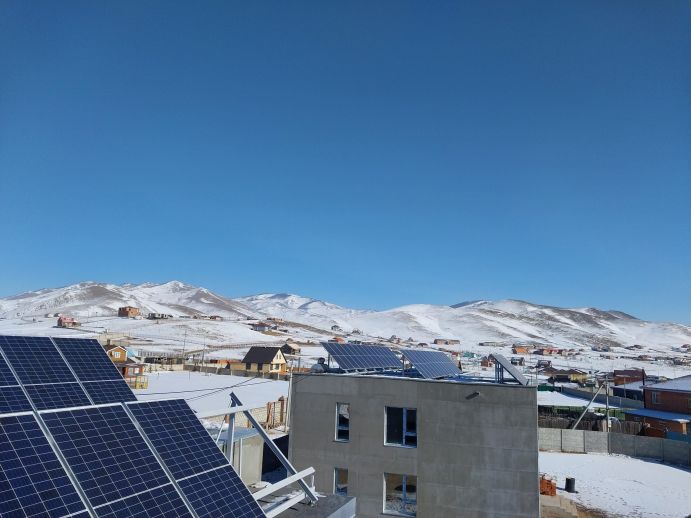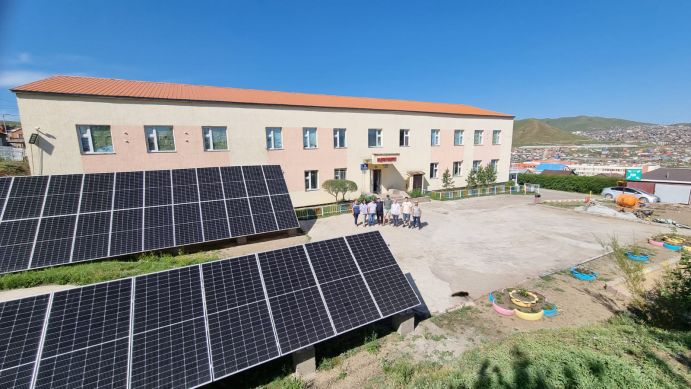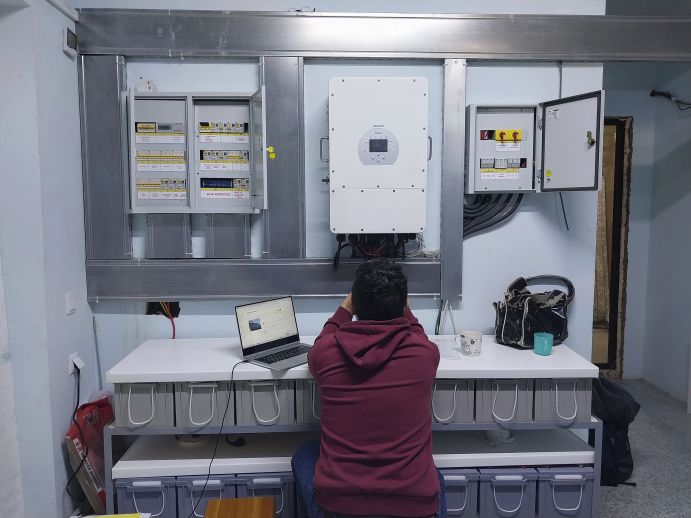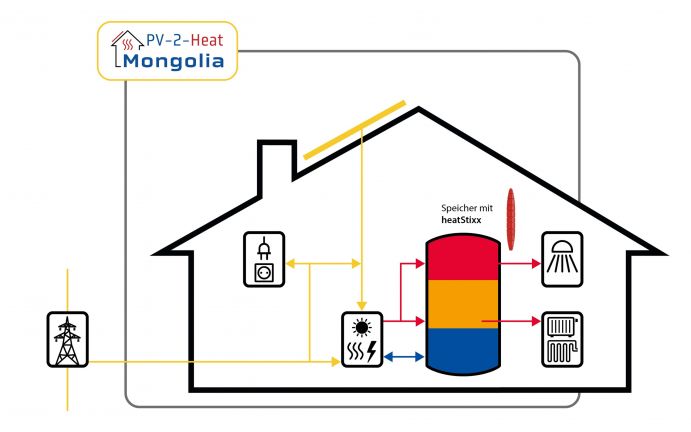BMBF-project PV-2-Heat: Sustainable heating systems for households in Mongolia
CO2-free heating and reducing smog in the Mongolian capital. To realise this vision, the project partners adapted the technology of PV-2-Heat systems to the climatic conditions and tested pilot systems in various areas of the city.
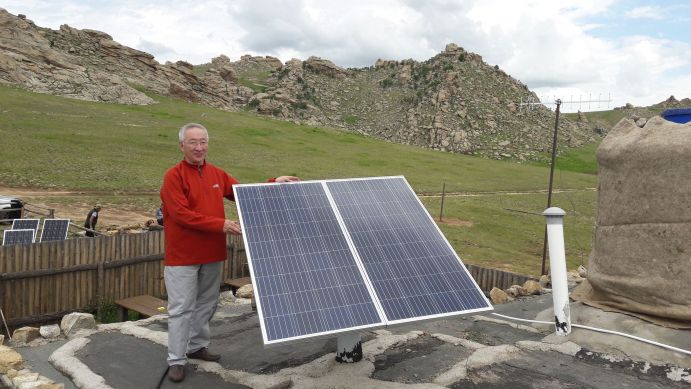
Ulan Bator, the capital of Mongolia, is the coldest capital in the world. In the winter months, temperatures of minus 30° C are commonplace. Old coal-fired power stations without flue gas filters and traditional heating with coal, wood and waste are used for heating. The population suffers from the extreme air pollution caused by this. Three years ago, the PV-2-Heat project, funded by the German Federal Ministry of Education and Research (BMBF), set itself the goal of finding sustainable, clean and safe heating systems for households and neighbourhoods in Mongolia. On 15 May, the project partners presented the results in Ulan Bator. Project manager Sven Jona explained: "We have succeeded in adapting so-called PV-2-Heat systems to the climatic conditions in Ulan Bator. Our initial evaluations show that such optimised systems are economical even under difficult conditions and that financing the investment therefore pays off. Thanks to power-to-heat technology, we have been able to lay the foundation for supplying the population with renewable electricity and CO2-free heat in the future."
Pilot systems in private households, public institutions and companies
The challenge for the international consortium, on which project partners from Germany and Mongolia are working: How can PV-2-Heat systems, which convert energy generated by photovoltaics into heat, be adapted to the climate of the Mongolian capital in such a way that sufficient heating power is supplied? This is because existing photovoltaic-based heating systems are hardly suitable for the extremely low winter temperatures and cannot be operated economically. The project therefore relied on innovative latent heat storage systems. These utilise special materials that can store thermal energy at a particularly high density and are therefore more thermally efficient.
One focus of the project partners was to further develop PV-2-Heat systems and the latent heat storage capsules and thus adapt them to the challenging climatic conditions in Ulan Bator. The project designed pilot systems, set them up and tested the newly developed systems at various locations.
In addition to further developing the heating system, the consortium also worked on integrating the electricity generated by the photovoltaic systems into Ulan Bator's existing power grid.
With the newly developed systems, the project provides the basis for so-called up-scaling - i.e. the expansion of the sustainable heating system by the Mongolian government. A sustainability study evaluates the developed solution for electricity and heat production, taking into account economic and political/regulatory dimensions.
The BMBF is funding the project with around two million euros as part of the CLIENT II programme.




